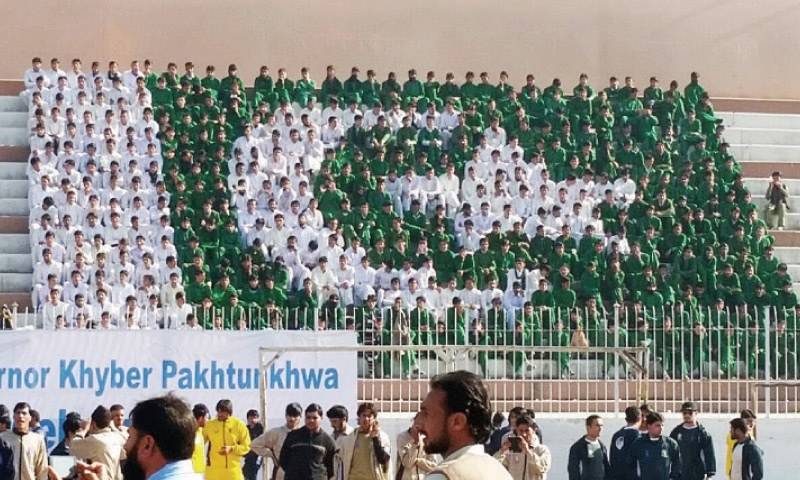Reported with the assistance of Umer Farooq and Anees Ur Rahman, from The University of Peshawar
The annual FATA Youth Sports Festival was held in Pakistan last month and included a women’s competition for a second consecutive year – a crucial development for a region with a long history of female oppression.
The four-day games were held in April and boasted around 2000 participants representing all seven agencies and six frontier regions in the Federally Administered Tribal Area, known as FATA.
The Olympic-style tournament consisted of 30 different events including athletics, gymnastics, archery, volleyball and football.
FATA is a semi-autonomous tribal region in northwest Pakistan ruled by the federal government through a specialist set of laws called the Frontier Crimes Regulations (FCR).
Women in FATA are considered family property, and effectively invisible entities, under FCR which has essentially segregated them in the remote, male-dominated society, but their inclusion in the Youth Sports Festival shows progress in the region.

Photo courtesy of Getty images
The prolonged war in neighbouring Afghanistan has led to internal displacement and poverty in FATA and women have suffered most; often being orphaned or widowed as a result of the conflict.
Cultural customs, such as izzat (meaning honour), have been intrinsically linked to women’s behaviour, resulting in their freedoms being strictly controlled. This was intensified when the Taliban took over areas of FATA, exploiting FCR and rendering it ineffective.
But recently, Pakistan has shown glimpses of hope for women in FATA.
In March the federal government approved recommendations to merge FATA with Khyber-Pakhunkhwa, and repeal the FCR over the next five years.
The proposed integration includes adding 23 seats into the federal assembly to represent FATA, with four reserved for women. This would be a remarkable development considering the conservative cultural norms of FATA, where leadership opportunities have essentially been non-existent for women.

Photo courtesy of Umer Farooq
Female Youth Sports Festival participant, Muskan Afridi, was elated by the inclusion of women in the games but admits further resources are required to improve women’s sport in the region.
“FATA Youth Festival was a great experience,” Ms Afridi said.
“Being a woman from FATA, there are a lack of opportunities; we don’t have proper grounds, instructors or coaches.
“Being included is good exposure, but how can a girl with no practice compete in such a big event?
“I think the government should appoint coaches and instructors in the girls schools and colleges, and also provide kits and other essential materials so we can train on a daily and weekly basis.
“After that we will be able to represent our country on the national and international level,” Ms Afridi said.
The most remarkable moment of the games occurred during the women’s athletic event, when a four-year-old completed the 400-metre run to the surprise of spectators and competitors alike.

Photo courtesy of Getty images
Khyber Agency won the women’s competition with 37 points, Kurram Agency came second with 24 points, while Mohmand Agency came third with 17 points.
The Pakistani government is seeking to provide more opportunities for youth in the country, and worked closely with the Pakistani army on the promotion of sports in FATA.
Technical education, colleges, and employment schemes have also been part of the focus on youth as the country works towards peace and stability after fighting terrorism for so long.
While the continued inclusion of women in the FATA Youth Sports Festival is promising, an improvement in funding and training for women’s junior sport is necessary to take the competition to the next level, and ensure there’s balanced representation of men and women in future games.
But the commitment to women’s sport in FATA is an incredibly encouraging sign for the advancement of women’s rights in Pakistan.







